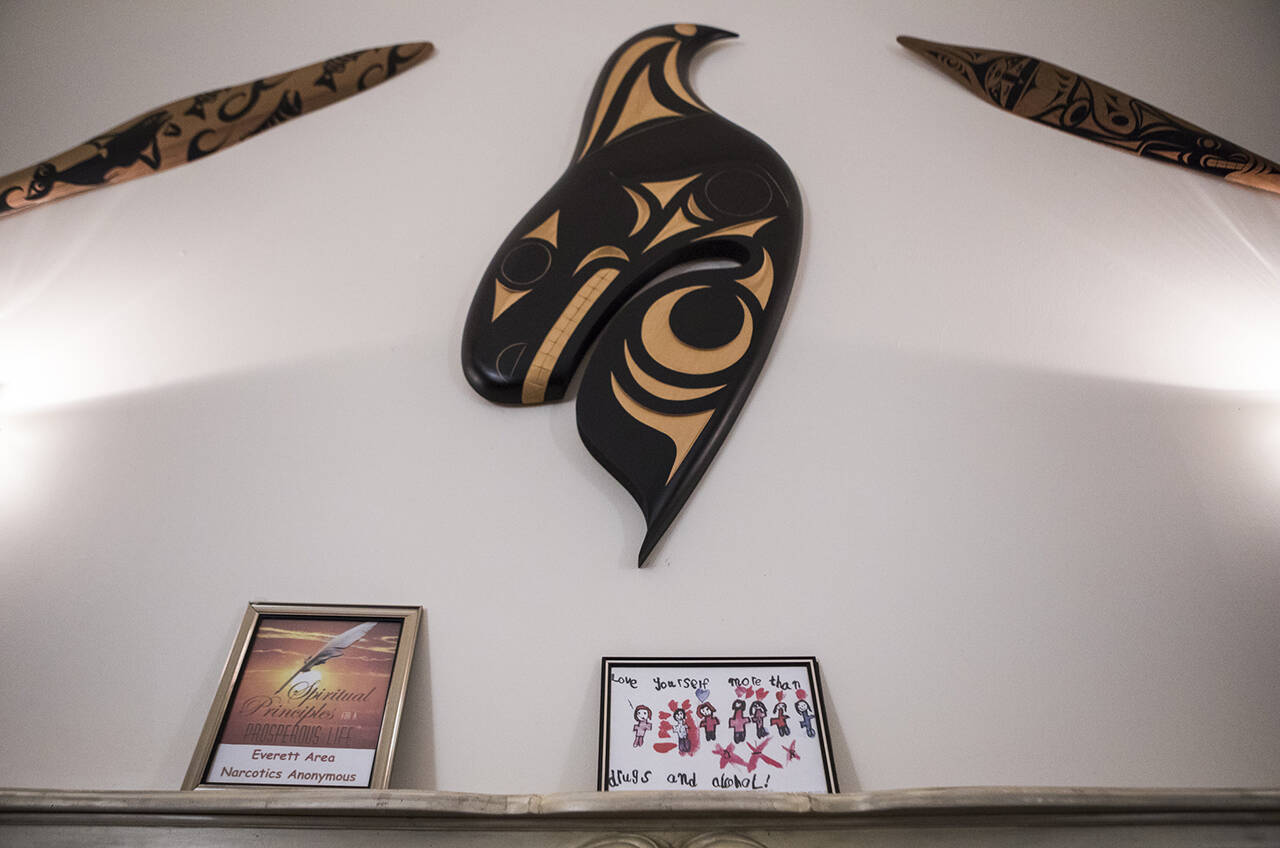TULALIP — Over a half-dozen Tulalip tribal members die each year of unintentional drug overdoses, leaders say.
Now drug maker Johnson & Johnson and the country’s three largest drug distributors are acknowledging some responsibility in making things right. The Tulalip Tribes could get $1.85 million as part of a $590 million tentative settlement with hundreds of Native American tribes for the toll of the opioid epidemic on their communities.
“The settlement will put — I don’t even know if I’d call it a small dent — a ding in the crisis,” said Tulalip elder and former Tribal Council member Les Parks. “We’re not going to get a lot of relief from Johnson & Johnson. Certainly not enough to offset the damage they had caused.”
The opioid epidemic in Indian country is worse than any other segment of the American population, Lloyd B. Miller, a lead lawyer for the plaintiffs, told The Daily Herald.
Substance use and disorder is higher among those with greater exposure to trauma, like Native American communities, who live with historical traumas.
The Tulalip Police Department responded to 19 overdoses in 2020. And in 2016, the overdose death rate on the reservation was reported to be six times higher than it is for the white population in Snohomish County.
Parks said dozens of Tulalip tribal members use the methadone clinic on the Stillaguamish reservation.
“I don’t think there’s one single tribal member that has not been affected by it,” Parks said of opioid addiction. “Within people they know, if not within their families.”
The Tulalip Tribes’ 146-page complaint filed in U.S. District Court in 2018 describes both the human and economic cost of opioids.
“Each life lost to a tribe because of the opioid epidemic and each child taken away from a tribal home threatens not only individual families, but also the ability of the tribe to maintain its culture, heritage, and sovereignty for generations to come,” the complaint states.
Tribal Chairwoman Teri Gobin said the epidemic in Tulalip means “not knowing if your family member’s going to survive another day.”
At least 85% of the funds from the settlement need to go toward drug treatment and related programs.
In Tulalip, the money would support existing programs and help get the ball rolling on adding a methadone clinic and community housing for people in recovery to the tribes’ existing programs.
The Tulalip Tribes already spend about $1.3 million each year to address addiction in the community, Gobin said.
“We’ve used hard dollars,” she said. “We’ve used every bit of funds that we can to help them out.”
In 2015, the tribes opened the Healing Lodge in Stanwood, which provides “wraparound” services for people coming out of substance use treatment facilities. Lodge staff help residents open bank accounts, get their driver’s licenses, buy cars and find a place to live. Residents get access to GED and high school completion courses, job training and parenting courses. It helped fill a gap in services for people in recovery.
Those rehabilitation programs will need to be expanded for the tribes to begin to end the cycle, Gobin said.
“They have to have a shimmer of hope when they come out.”
All 574 federally recognized Native American tribes and Alaska Native villages are eligible to participate in the settlements, regardless of whether the tribe filed suit.
Each tribe will be allocated a percentage of the dollars based on the impact of the opioid epidemic on its members, Miller said. A number of factors went into the calculations to attempt to be as fair as possible and reflect each tribe’s burden.
The Stillaguamish and Sauk-Suiattle tribes are also eligible to receive restitution for the toll of the opioid epidemic on Native communities.
If tribes agree, Johnson & Johnson would pay $150 million over two years and drug distributors AmerisourceBergen, McKesson and Cardinal Health would dole out $440 million over seven years.
Isabella Breda: 425-339-3192; isabella.breda@heraldnet.com. Twitter: @BredaIsabella.
Talk to us
> Give us your news tips.
> Send us a letter to the editor.
> More Herald contact information.

























